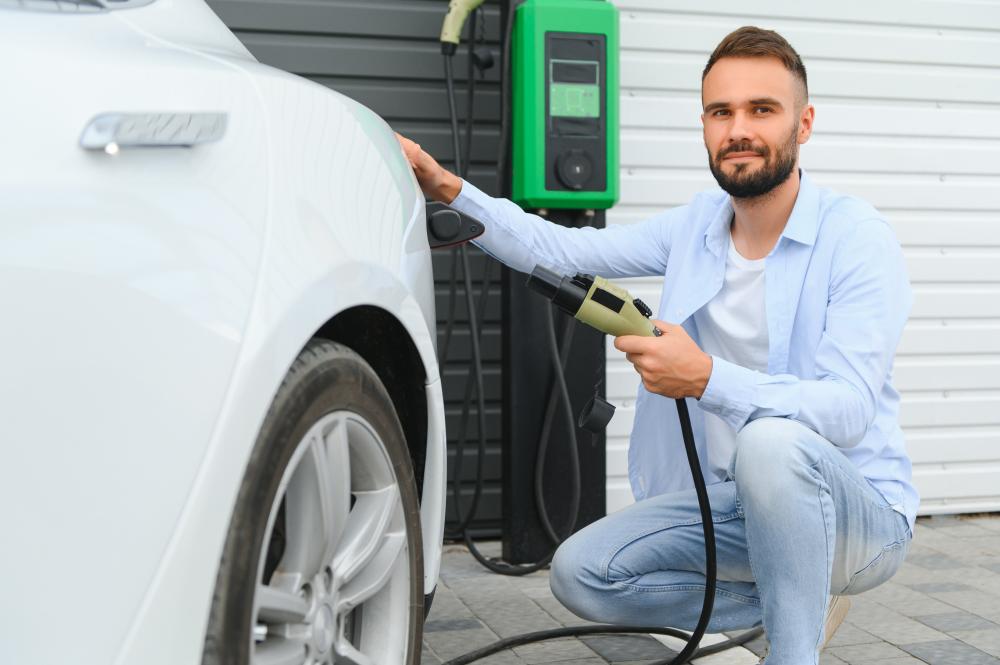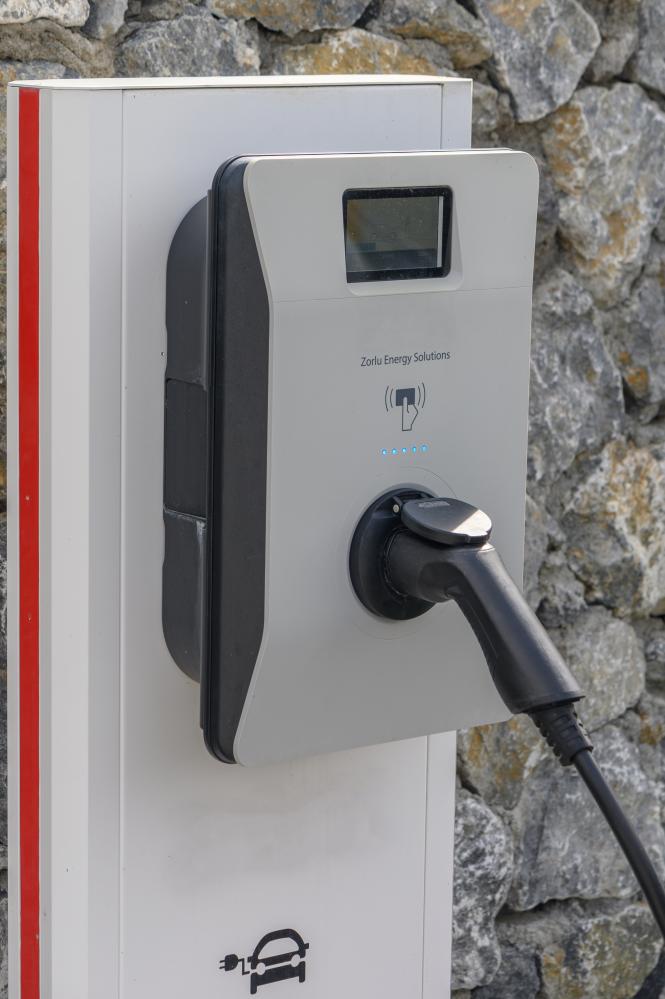Ev Charger Installation Cost

EV Charger Installation Cost
When it comes to the EV charger installation cost, various elements come into play, influencing the total expense. Hardware costs are a primary factor, covering the charger unit itself, which can range from a few hundred to several thousand dollars, depending on its level and brand. Additional materials like cables and connectors also add to expenses.
Labor represents another crucial component, with the complexity and duration of the installation dictating the cost. For example, installing a high-capacity Level 2 charger might require specialized knowledge and skills, which can increase labor fees. Home Alliance emphasizes the importance of skilled technicians to ensure a safe and efficient installation, reflecting their reputation for excellence in cooling and heating services.
Permitting and inspection fees further contribute to the overall cost. Local regulations often require permits for installing EV chargers, and an inspection might be necessary to ensure compliance with electrical codes. These requirements vary by location, adding another layer of complexity to estimating the EV charger installation cost.
Important Factors to Consider
Beyond the obvious costs, several factors can subtly influence the EV charger installation cost. Distance from the electrical panel to the charging location is one such factor, as longer distances may necessitate more wiring and increased labor. Another consideration is the amperage of the existing electrical system, which might need an upgrade to support the new charger.
Homeowners should also contemplate their future needs and potential technology advancements when planning their EV charger installation. A forward-thinking approach might involve opting for a charger with higher capacity or compatibility with smart home technologies, which could offer savings down the line. Home Alliance's expertise in HVAC systems extends to advising on energy-efficient solutions, offering insights into balancing immediate costs with long-term benefits.
Benefits of Professional Installation
Opting for professional installation provides numerous advantages beyond just addressing the immediate EV charger installation cost. Safety is paramount, as improperly installed chargers pose risks such as electrical fires and equipment damage. Professional installers like Home Alliance ensure that installations adhere to safety standards, mitigating these hazards.
The warranty and servicing aspects are also noteworthy benefits. Many manufacturers require professional installation for warranty validity, ensuring that customers receive support if issues arise. Moreover, professionals can provide ongoing maintenance, ensuring that chargers operate optimally, similar to how Home Alliance maintains HVAC systems to prolong their lifespan and efficiency.
Home Alliance's approach underscores the value of a trusted provider, as demonstrated by their stellar customer feedback. Their commitment to quality, whether for HVAC or EV solutions, ensures that clients receive comprehensive service that transcends mere installation, aligning with the evolving needs of modern home systems.
Exploring Financial Options
Navigating the EV charger installation cost can seem daunting, but various financial options can alleviate the burden. Incentives and rebates from government programs and utility companies can significantly reduce costs. These programs often encourage sustainable practices by offering financial assistance to offset initial expenses.
Financing options present another route, allowing homeowners to spread costs over time rather than bearing them upfront. Many financial institutions offer loans specifically tailored for sustainable home improvements, making them an attractive choice for eco-conscious homeowners. Home Alliance can provide guidance on these options, drawing parallels from their comprehensive HVAC service approach.
Even negotiations with suppliers and installers can yield cost savings. Developing a clear understanding of the installation requirements and communicating effectively with service providers like Home Alliance can lead to mutually beneficial arrangements. Their commitment to customer satisfaction ensures that every aspect, including EV charger installation, is handled with transparency and flexibility.

Factors Impacting EV Charger Installation Price
The process of installing an EV charger can be both exciting and perplexing, especially when considering the various factors that influence the overall ev charger installation price. One significant element is the type of charger being installed. Level 1 chargers generally involve a straightforward installation process, often utilizing a standard 120-volt outlet, which tends to keep costs lower. In contrast, Level 2 chargers require a 240-volt outlet, possibly needing modifications to existing electrical systems, which can cause prices to surge.
Another crucial factor is the location of the charging station. Installation costs can escalate if the desired location is far from the electrical service panel due to the increased need for trenching or running extensive wiring. Additionally, if your home's electrical panel needs upgrading to accommodate the added load, this too will affect the ev charger installation price, often significantly.
Moreover, the choice between hiring a professional electrician versus attempting a DIY installation can also impact costs. While going the DIY route may seem cost-effective initially, the expertise of a certified professional is invaluable, ensuring compliance with local regulations and safety standards.
Hidden Costs to Consider
When discussing the ev charger installation price, it's essential not to overlook the often invisible costs that accompany the installation process. Permitting fees can vary widely based on local government regulations, adding an unexpected layer to pricing. Some municipalities require inspection fees as well, which can cause surprises if not accounted for in the initial planning stages.
Then there's the potential for repair or upgrade of existing infrastructure. Homes with outdated electrical systems might need significant modifications, which could include panel upgrades or even rewiring sections of the home. These upgrades are not just additional costs but investments in a home's future energy needs.
Furthermore, maintenance and potential repairs post-installation should be anticipated. While modern chargers are generally robust, wear and tear or unexpected tech failures could incur additional expenses over time. Entering a maintenance plan or warranty agreement could mitigate some of these long-term costs, setting homeowners' minds at ease.
Personal Perspectives and Professional Insights
From a hands-on perspective, one Home Alliance technician recounts encountering a variety of installation scenarios, from new builds to century-old homes, highlighting the diverse challenges that shape the ev charger installation price. "Each job is unique," they say, "and understanding the customer's specific needs ensures both satisfaction and safety."
Homeowners themselves often express surprise at the complexity involved in preparing their homes for electric vehicle charging. One homeowner shared, "I thought it would be as simple as plugging in a new appliance. The learning curve was steep, but having a knowledgeable team like Home Alliance made all the difference."
For those considering the installation of an EV charger, understanding the multifaceted nature of the ev charger installation price is crucial. It's not merely about the charger itself, but how the home can best support this new technology while ensuring safety and efficiency.
The team at Home Alliance brings a wealth of experience to the table, understanding that the task of installing an EV charger extends beyond simple setup. It's about providing a seamless integration into the home's existing systems while anticipating future needs and ensuring a reliable and sustainable approach to home energy usage.
Planning and Preparation for EV Charger Installation
Installing an EV charger is a strategic decision that transforms how homeowners interact with their electric vehicles. Home Alliance, renowned for its home services expertise, understands the importance of this process, especially when it involves both electrical considerations and practical aspects. The first step involves choosing the right charger, which can vary based on vehicle model, charging speed preference, and budget.
Home Alliance advises on evaluating your home's existing electrical capacity to ensure it can handle the additional load of an EV charger installation. This can prevent potential future issues and enhance the charger's functionality. Overloading your system is not just inconvenient; it could also lead to a host of avoidable problems. Our professionals often recommend a load assessment conducted by a certified electrician as a preventative measure.
A permit might be required depending on your local jurisdiction when undertaking an EV charger installation. Home Alliance has encountered many homeowners unaware of this step, leading to delays in the installation process. Being proactive and consulting local regulations can streamline the installation journey.
The Installation Process
The installation process for an EV charger is not as daunting as it appears when handled by professionals like Home Alliance. Our skilled technicians bring years of experience, ensuring the charger is installed efficiently and safely. The process starts with site evaluation, followed by the mounting of the charging unit on a robust surface--typically a wall in your garage.
Wiring the charger is where expertise truly becomes invaluable. Connecting the charger to your main electrical panel needs precision to integrate seamlessly into your existing setup. This is where Home Alliance excels, offering peace of mind through our meticulous approach.
Safety inspections are vital post-installation. We ensure that the equipment operates correctly and adheres to safety standards. At Home Alliance, we emphasize addressing these safety measures to prevent potential hazards and ensure long-term reliability.
As a testament to our commitment to excellence, Home Alliance offers troubleshooting support following the installation. Our responsive service ensures that any minor hiccup encountered after the EV charger installation is swiftly addressed, giving homeowners confidence in their investment.
Long-term Benefits and Customer Experience
Installing an EV charger at home significantly contributes to sustainable living by promoting the use of electric vehicles. It offers convenience and cost savings over time. Home Alliance clients often express delight at the freedom from public charging stations, enjoying the luxury of a full charge each morning--perfect for daily commutes or spontaneous road trips.
In our experience, homeowners appreciate the increase in property value that an EV charger installation brings. It is an attractive feature for future buyers as the demand for electric vehicles continues to rise, cementing the installation as a wise investment.
Moreover, the environmental benefits of reduced emissions align with the community's growing commitment to sustainable practices. As Home Alliance continues to innovate in the home services industry, we remain dedicated to supporting the transition to greener lifestyles through reliable EV charger installation services.
Customer satisfaction is central to Home Alliance's ethos, and our EV charger installation service is no exception. Through professionalism, prompt service, and a customer-centric approach, we aim to exceed expectations and foster lasting relationships with those we serve.

How much does it cost to install an EV charger?
Installing an EV charger can vary significantly in price, and it largely depends on the type of charger (Level 1 or Level 2), the complexity of the installation, and your home's existing electrical infrastructure. On average, you might expect to pay between $500 and $2,500 for the installation. For instance, if you're opting for a Level 2 charger, which is more efficient and faster than a Level 1, you could incur higher costs due to additional wiring and electrical panel modifications. Here at Home Alliance, we often recommend a professional evaluation to give you a precise estimate, customized to your specific needs. This ensures not only a safe installation but also optimizes the operation, potentially saving you on future energy costs. Feel free to reach out if you have specific requirements or scenarios you'd like us to discuss further.
How much does it cost to install a 240V outlet for electric car?
Installing a 240V outlet is a crucial step if you're looking to set up a Level 2 EV charger. Typically, the installation of such an outlet can range from $300 to $800, but this can fluctuate based on your local electrician rates, the distance from your main electrical panel, and any necessary upgrades to your existing electrical service. At Home Alliance, we recognize that each installation is unique and can impact the price. We usually conduct a thorough assessment before providing a quote, ensuring we cover any potential additional work like panel upgrades. It's this attention to detail and commitment to understanding your home's electrical capacity that helps ensure both safety and efficiency. What specific challenges do you think you might face in your setup?
How much does it cost to install EV charging unit?
The cost to install an EV charging unit encompasses several components beyond just the unit itself, which can range from $300 to $1,200 or more, depending on the brand and capabilities. Additionally, installation costs can vary based on the complexity of wiring, the need for additional electrical infrastructure, and local permitting fees. At Home Alliance, we stress the importance of considering not just the upfront costs, but also the potential long-term benefits and savings. A professionally installed charging unit can enhance your home's value and provide reliable service for years. For us, it's not just about putting a charger on your wall; it's about integrating a new technology into your home's systems seamlessly. Are you planning on utilizing any rebates or incentives for your installation?
Can I use my dryer outlet to charge my EV?
Using a dryer outlet to charge your EV is an interesting idea and sometimes feasible, but it requires caution. Many dryer outlets operate at 240 volts, which aligns with the needs of a Level 2 charger. However, compatibility depends on whether the outlet can handle the EV charger's amperage requirements without overloading the circuit. Safety is paramount, so we at Home Alliance recommend consulting with a certified electrician to assess the suitability of this setup. It's a cost-effective solution if your electrical system can support it, but often a dedicated circuit is safer and more reliable. Thinking of long-term use, would you prefer investing in a separate outlet to avoid any potential household electrical strains?
What are the factors affecting EV charger installation price?
The price of EV charger installation can be influenced by several key factors. The type of charger, whether Level 1 or Level 2, is primary. Level 2 chargers, for example, require a 240V outlet and potentially more extensive electrical panel work. The location of the charger also plays a role; the further it is from the electrical panel, the higher the potential cost for additional wiring. Home electrical capacity must be considered as well; upgrading an outdated system can add to the price. At Home Alliance, we focus on offering detailed assessments to identify these cost factors upfront, ensuring transparency and avoiding surprises. Have you considered a home energy audit to better prepare for such installations?
What are the hidden costs to consider in EV charger installation?
Hidden costs in EV charger installation often catch homeowners off guard. Permitting and inspection fees can vary greatly depending on local regulations but are essential for compliance and safety. Additionally, if your home requires an upgrade to its electrical panel, that can be a significant expense. Long-term, you'll also want to account for maintenance or service plans, which ensure the charger remains in good working order. At Home Alliance, we help our clients plan for these additional costs by providing a comprehensive upfront assessment that includes potential hidden fees. This planning helps you avoid unexpected charges later. How prepared do you feel for the nuances of integrating an EV charger into your home?
What are the benefits of professional EV charger installation?
Choosing professional installation for your EV charger brings numerous benefits. Most importantly, it ensures safety and compliance with local electrical codes. Improperly installed chargers can pose risks like electrical fires. Professional installers, like those at Home Alliance, provide peace of mind by adhering to safety standards and securing warranty validation from manufacturers. Moreover, trained technicians ensure optimal placement and integration with your existing home systems, potentially increasing energy efficiency and reducing costs over time. With our expertise, you gain not just a functional charger but a reliable and safe home upgrade. What aspects of professional installation are most important to you?
What should be considered in planning and preparation for EV charger installation?
Planning and preparation are key to a successful EV charger installation. Start by understanding your vehicle's charging needs and how they align with your home's electrical capacity. You may need a load assessment to ensure your current system can handle the additional load. Permits are another crucial aspect -- securing them can prevent installation delays. At Home Alliance, we emphasize thorough upfront planning, which includes evaluating local regulations and electrical requirements, to streamline the process. Such preparation not only saves time but can also prevent unforeseen costs. What's your timeline for getting an EV charger installed, and how flexible are you with it?
Resources
- U.S. Department of Energy - The U.S. Department of Energy provides information on energy efficiency, renewable energy, and sustainable transportation.
- Federal Trade Commission - The Federal Trade Commission offers consumer information and tips on making informed decisions about products and services.
- National Renewable Energy Laboratory - The National Renewable Energy Laboratory conducts research on renewable energy and sustainable technologies.
- Environmental Protection Agency - The Environmental Protection Agency provides resources on environmental issues, including energy efficiency and emissions reductions.
- National Highway Traffic Safety Administration - The National Highway Traffic Safety Administration offers information on vehicle safety and regulations, including electric vehicles.

